MEDIA FOR CHANGE NETWORK
Uganda reverses forest destruction by inviting in … loggers
Published
5 years agoon
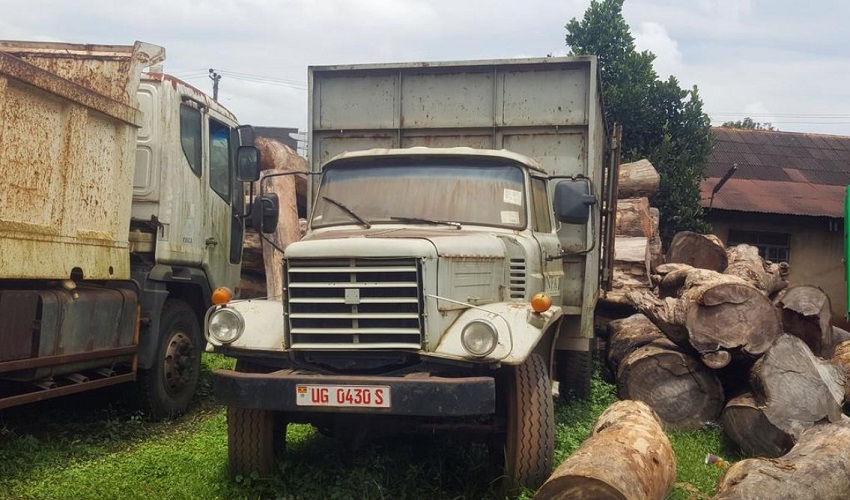
KALAGALA, Uganda (Reuters) – For decades, farmers hungry for land and families needing firewood whittled away at Uganda’s forests, home to endangered gorillas, elephants and chimpanzees.
Now the decline has reversed, thanks to a government policy that relies on loggers to help protect trees. Private companies are developing timber plantations as buffers next to protected forests.
“Private planting is helping raise trees … to absorb carbon and lock it there, but they are also stopping people from demanding timber in protected reserves, so it’s a win-win situation,” Tom Okello, head of the state-run National Forestry Authority (NFA), told Reuters.
But expanding forest cover further will not be easy, Okello added, with some 90% of Ugandans relying on firewood for cooking amid some of the highest electricity prices in Africa.
Uganda’s forest cover plummeted from 24% of its area in 1990 to 9% in 2015, said a donor-funded report, State of Uganda’s Forestry. It is now up to 12.5%, according to Okello.
Uganda’s forest cover has clearly increased, said Leonidas Hitimana, project coordinator at the U.N. agency Food and Agriculture Organization, which helps fund some of the private forestry investors.
The companies are licensed to plant trees for timber in unplanted parts of government-owned forest reserves, such as Mpanga Forest Reserve in central Uganda where a trail twists through eucalyptus seedlings next to a forest of towering hardwood trees.
The program began 15 years ago, but the impact unfolded slowly – it takes at least seven years for a seedling to grow tall enough to count as forest cover.
Then the timber had to meet growing demand before any recovery was possible – timber consumption rose by around 50% between 2005 and 2011, the donor report said.
So far the NFA has licensed 4,000 private local and international investors, including Britain’s New Forest Company, Norway’s Green Resources and Germany’s Global Woods. Nearly half the 200,000 hectares allocated for the initiative have been planted.
Favoured species include pine, eucalyptus, teak and maesopsis. A pine plantation takes about 20 years to mature and makes a return of over 500%, the NFA said.
The timber meets demand previously filled by illegal logging. Armed patrols also help deter cutting. A pile of confiscated Afzelia africana logs lies on the lawn of the NFA, their rotting bark revealing the hard wood prized in China.
CLIMATE BUFFERS
Uganda’s tropical rainforests are vast carbon sinks, safeguarding water catchment areas and mitigating the harsh effects of climate change.
Uganda’s maximum average annual temperature increased an estimated 0.6-0.9 degrees Celsius between 1951-2010, a 2018 Irish Aid report found, predicting an increase of around 2°C over the next 50 years.
Father-of-12 Muhammad Katerega, who grows vanilla, beans and potatoes on the edge of Mpanga forest, complains that rains and droughts seem more unpredictable and extreme.
“Sometimes I plant my crops expecting a rainy season, but instead there’s a drought and I lose my entire crop,” said the 59-year-old, his gumboots red with soil.
Reforestation might help reduce such unpredictability and slow the warming.
“Forests are natural carbon sinks for tropical countries which don’t have large seas,” Tom Sengalama, climate change and natural resources adviser at British development agency DFID, told Reuters. “A deforested landscape is less resilient to climate changes.”
Okello says NFA wants to replenish forest cover back to 24% of Uganda’s landmass by 2040. His biggest obstacle: costly power. If the forests are going to survive, that must change, he added.
“Unless electricity is cheaper, we will keep cooking on firewood. We don’t have an alternative,” Katerega said, minutes after a group of children clutching machetes filed into the forest.
Reporting by Elias Biryabarema; Editing by Katharine Houreld and Mike Collett-White
Original Post: Reuters
Related posts:
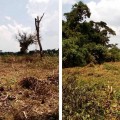
 Bugoma forest under threat again as more 2000Ha is dished to investors
Bugoma forest under threat again as more 2000Ha is dished to investors
 Uganda: Local communities claim they are not benefiting from Green Resources’ subsidiary’s carbon credit initiative; incl. company’s comments
Uganda: Local communities claim they are not benefiting from Green Resources’ subsidiary’s carbon credit initiative; incl. company’s comments
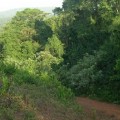 NFA reports 450 illegal land titles in forest reserves
NFA reports 450 illegal land titles in forest reserves
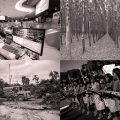 How forest policies and agencies promote sustainable destruction
How forest policies and agencies promote sustainable destruction
You may like
MEDIA FOR CHANGE NETWORK
Will Uganda’s next government break the land-grabbing cycle?
Published
5 days agoon
January 13, 2026
By Witness Radio team
Uganda has experienced persistent land evictions for decades. However, some actors are increasingly deliberating on how to ensure people have land tenure security. As the country heads into another general election on Thursday, the 15th of this month, land has once again emerged as one of the most emotionally charged and politically sensitive issues during the campaigns.
From the Kiryandongo land grabs involving multinational companies to the Amuru land wrangles, and from Bunyoro’s oil-rich fields to increasing evictions in the Buganda (Central) sub-region of Uganda, stories of land grabbing and displacement continue to dominate public debate and news headlines, especially during presidential campaigns. Every election season brings renewed promises from political actors to end land injustice.
According to the 2024 Police Annual Report, 397 land-related criminal cases were recorded, up from 271 in 2023, underscoring the urgent need for systemic solutions to address this escalating crisis.
Land grabbing in Uganda often leaves communities landless and powerless, which should evoke empathy and motivate the citizenry to seek justice and systemic change.
Mr. Ulama Dison Duke Ukerson will take decades to forget how his land, which he invested all his savings in, was forcibly seized by the Uganda Peoples’ Defense Forces (UPDF), a national army.
“The UPDF has taken over my land. They occupied it and are now using my six buildings. I had constructed them for my piggery and poultry farming project on my five acres of land,” he revealed in an interview with Witness Radio.
The chief is among hundreds of people in the Koch community living in distress after the alleged grabbing of clan land by the Uganda Army in March 2020, which seized approximately 100 acres of land used by the community for over 150 years without consultation or compensation, illustrating the widespread injustice faced by vulnerable communities.
“People are suffering, and no one has compensated us. We just woke up one day to see the army forcefully taking our land. I first heard about the soldiers’ presence from the chairman. By then, they had already broken into my manager’s house,” he added.
Although he is the traditional chief of the Pangero Clan, this did not stop those in power from grabbing his land. The land taken covers three villages: Aleikra, Kochi Central, and Panyabongo in Koch Parish, Nebbi District, belonging to the Pangero clan. Despite the years passing by, the Pangero Chiefdom remains in uncertainty and hardship.
Across Uganda, many communities face evictions, and presidential candidates’ acknowledgment of this nationwide concern can inspire Ugandans to use this opportunity to push for concrete actions and hold leaders accountable for real change.
Manifestos full of promises.
Major political parties contesting for power acknowledge the gravity of the land crisis and have placed solving the problem prominently in their manifestos. Other aspirants have promised not only to stop land grabbing but also to reinstate displaced people on their land.
The Forum for Democratic Change (FDC) promises legal reforms, including a review of the Constitution and the Land Act, simplified registration of customary land, stricter controls on notable land titles, faster resolution of land cases in courts, enforcement of women’s land rights, and harmonization of land and environmental laws.
The National Unity Platform (NUP) frames land grabbing as a human rights and governance crisis driven by elite capture, foreign investment, and intimidation. Its manifesto proposes restoring land to rightful owners, establishing a National Customary Land Registry, subsidizing Certificates of Customary Ownership, protecting Mailo land tenants, preventing politically connected land grabs, and introducing blockchain-based land registration.
Under the current regime, land evictions continue to escalate. Many alleged land grabbers are power-connected. Other persistent challenges in the land sector include double titling, disregard for laws, court orders, and directives, and multiple offices issuing conflicting instructions that they lack the capacity or will to enforce. One of the most uncomfortable truths in Uganda’s land crisis is the involvement of security agencies in evictions. Police, private security companies, and military personnel are frequently deployed during land disputes, often siding with investors or landlords against vulnerable communities.
Although the Minister of Lands, Judith Nabakooba, has issued several directives barring security agencies other than the police from enforcing land evictions, these orders are not implemented.
Despite the challenge posed by this problem, the ruling National Resistance Movement (NRM) has also proposed measures in its manifesto, building on existing programs. These include mass land titling, expansion of the Land Fund, issuance of Certificates of Customary Ownership and occupancy certificates, investigations into multiple titling, action against illegal evictions, use of technology, and faster land transactions.
Will the next Government break the cycle?
Despite well-articulated promises, many believe that systemic enforcement failures-such as corruption, impunity, and lack of political will-are the main drivers of ongoing land grabbing, underscoring the need for accountability to motivate action.
Uganda does not lack land laws or policies; what it needs is more vigorous enforcement and protection for the vulnerable, which should motivate the audience to demand action and accountability.
“If you observe the proposals by NRM, which is in power, NUP, which is not in power, and FDC or any other political aspirant, they are all largely structural and administrative. They all point to behavioral change. NRM continues to promise solutions to problems; it already has the authority to solve,” Land rights expert, Mr. Jimmy Ochom told Witness Radio.
Mr. Ochom, who has worked in the land sector for over 10 years, argues that existing laws are sufficient if properly implemented.
“If we followed what the Constitution, the Land Act, and the National Land Policy provide, we would not be facing this crisis. The problem is implementation. That is the truth. That’s why I get frustrated when new land laws are proposed. We already have adequate legal frameworks,” he said.
According to Ochom, the missing link is accountability, particularly for those in power.
“Land grabbing in Uganda rarely involves ordinary citizens. It often includes politically connected individuals, senior security officers, influential business interests, and complicit land officials. It involves a lot of forces and money, which a poor person cannot afford,” he added.
Emerging technology.
Both NUP and NRM propose using blockchain and digital systems to secure land records. While these tools can enhance transparency, land rights advocates should remain cautious about over-reliance on technology alone, as political will and enforcement are crucial for real change, warns Ochom.
“Digitizing land records doesn’t fix corruption by itself. If the underlying titles are fraudulent and political and legal systems are weak, technology may make injustice faster, more credible, and harder to challenge.”
Breaking the land-grabbing cycle requires accountability across all sectors, not just better land laws, political promises, or election-time excitement. If land continues to be politicized and accountability avoided, the situation will remain unchanged; leaders will enjoy the benefits of office while citizens who voted for them continue to suffer evictions and dispossession.
“I am wondering where my people are going to live. Why should a sane government do this to its subjects?” the traditional clan chief questioned.
Related posts:
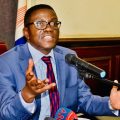
 Church of Uganda’s call to end land grabbing is timely and re-enforces earlier calls to investigate quack investors and their agents fueling the problem.
Church of Uganda’s call to end land grabbing is timely and re-enforces earlier calls to investigate quack investors and their agents fueling the problem.
 Land actors warn of looming violent conflicts due to escalating land grabbing in Sebei and Bugisu sub-regions.
Land actors warn of looming violent conflicts due to escalating land grabbing in Sebei and Bugisu sub-regions.
 Archbishop Kazimba Condemns Land Grabbing, Urges Govt to Act
Archbishop Kazimba Condemns Land Grabbing, Urges Govt to Act
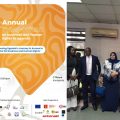 Land and environmental rights defenders, CSOs, scholars, and government to meet in Kampala to assess Uganda’s performance on the implementation of the UN Guiding principles on Business and Human Rights in Uganda.
Land and environmental rights defenders, CSOs, scholars, and government to meet in Kampala to assess Uganda’s performance on the implementation of the UN Guiding principles on Business and Human Rights in Uganda.
MEDIA FOR CHANGE NETWORK
COP30 : a further step towards a Just Transition in Africa
Published
6 days agoon
January 12, 2026
Climate change has emerged as one of the predominant challenges for Africa, through its cascading environmental, social and economic effects.
Africa is still a continent where over 600 million people do not have access to electricity1, 230 million people do not have access to safe drinking water2, and more than 300 million people continue to suffer from hunger3, while its population is expected to double to 2.5 billion people by 20504.
It accounts for only 3.6% of global greenhouse gas emissions5, while the continent is home to 18.8% of the world’s population6.
Yet there is a real risk that it will endure some of the worst impacts of climate change.
In the assessment and projections made by the African Adaptation Initiative in the Africa State of Adaptation Report (2023)7, the conclusions are stark: the macroeconomic costs associated with the various adverse effects of climate change are significantly higher in Africa than in other regions of the world. African economies are highly sensitive not only to climate-related disasters, but also to annual variations in climate variables. The economic and livelihood impacts of climate change in Africa are therefore profound and are already leading to a slowdown in economic growth. And while the extent of this impact varies across the continent, seven of the ten countries identified as most vulnerable to the effects of climate change are in Africa8.
However, at the same time, Africa has enormous natural resources that could sustainably support its economic and social development, while positioning it as a key global player in the fight against climate change, thanks in particular to its wealth of minerals and biodiversity.
It is therefore in these three areas (adaptation, development and climate action) that it must be able to mobilise its resources and attract public and private funding. Needs are high: Africa’s climate finance needs are now measured in the trillions9.
On each of these points, COP30, held in Belém (Brazil) from 10 to 21 November 2025, made several advances.
1. Ensuring a Just Transition
In line with the Sustainable Development Goals (SDGs), Just Transition refers to the need to implement the sustainability transition in a socially just way that guarantees proper engagement with and support for affected and vulnerable people and communities. A declination of climate justice, it also acknowledges that without actively including and supporting affected groups within the transition, the disruptive changes brought about by climate action risk resulting in political opposition, contestation and even climate backsliding.
The imperative of a Just Transition was recognised already in the 2015 Paris agreement, but the work on Just Transition within the UNFCCC regime has gained more momentum in the past few years, with the Just Transition Work Programme10 established at COP28 in Dubai in 2023.
The Addis Ababa Declaration on Climate Change and Call to Action11 adopted on 10 September 2025 during the Second African Climate Summit also emphasized the importance of achieving Just Transition pathways in the implementation of all pillars of climate action under the Paris Agreement.
1.1 The Just Transition Mechanism
COP30 went a step further, through what is praised as one of its most concrete and successful achievements: the decision to develop a Just Transition Mechanism12. Popularly known as the Belém Action Mechanism or BAM, its purpose is ‘to enhance international cooperation, technical assistance, capacity-building and knowledge-sharing, and enable equitable, inclusive just transitions’.
Importantly, the decision acknowledges the need to support the Just Transition in a manner that does not exacerbate the debt burden of countries.
This decision also provided important clarity on what the international community views as a just transition. It recognizes the ‘importance of just transition pathways that respect, promote and fulfil all human rights and labour rights, the right to a clean, healthy and sustainable environment, the right to health, the rights of Indigenous Peoples, people of African descent, local communities, migrants, children, persons with disabilities and people in vulnerable situations, and the right to development, as well as gender equality, empowerment of women and intergenerational equity’.
The Just Transition Mechanism aims to be operational by COP31 next year. In the meantime, the concrete design of the mechanism will take place.
1.2 Africa’s Special Needs and Circumstances
COP30 also formally opened a long-awaited two-year process on recognising Africa’s Special Needs and Circumstances (SNC), including a mandated conference under COP31 in 2026 and a report to COP32 in 2027 in Addis Ababa, Ethiopia.
This is a first step in response to Africa’s long-standing demand for this formal recognition, which would acknowledge its unique vulnerabilities, including low historical emissions, disproportionate climate impacts and limited adaptive capacity, and could help it attract greater climate finance and technological support in the future.
1.3 Integrated Forum on Climate Change and Trade (IFCCT)
In parallel to the UN process, Brazil launched the Integrated Forum on Climate Change and Trade (IFCCT) to better address the potentially significant consequences of trade-related environmental instruments on development and the risk of economic exclusion of developing countries, particularly the least developed countries, without recognition of historical responsibility or differences in capacity.
This initiative follows the introduction, by the European Union in particular, of trade-related climate and environmental instruments such as the Carbon Border Adjustment Mechanism (CBAM)13 and the Deforestation Regulation (EUDR)14. These measures aim to better internalise the environmental impacts of products and encourage improvements in environmental production conditions in Europe’s trading partner countries, aligning them with the constraints imposed on its own manufacturers.
Nevertheless, the EU CBAM has met with considerable resistance, both within Europe and from many countries in the Global South and the United States, which argue that it is a unilateral trade measure and question its compatibility with its international obligations under the World Trade Organisation (WTO).
This is a major challenge for South Africa due to its dependence on coal, but also for all African countries seeking to industrialise and strengthen their capacity to process, refine and manufacture components, such as batteries, rather than exporting raw materials, and may need to rely temporarily on fossil fuels.
2. Financing Africa’s Green Growth
Africa’s natural resources are first and foremost an opportunity for its population, but also for the world, in the context of the global fight against climate change and the preservation of biodiversity. COP30 saw the first breakthrough in grid financing and a major innovation in forest conservation financing.
2.1 The Climate Finance Principles to Unlock Grid Financings
Developed by the Green Grids Initiative (GGI) and advanced by COP 30 under the ‘Plan to Accelerate the Expansion and Resilience of Power Grids’, the Climate Finance Principles15 aim to address the barriers faced in emerging markets for accessing climate finance to support the development of power grids, as the diversity of generation sources that are connected to them make their environmental impact more complex to assess than for individual generation projects.
Co-developed with investors and industry representatives, these Principles establish a common approach to assessing grids’ eligibility for climate and green finance, combining system-level and project-level criteria (climate contribution, consistency, measurability and attribution).
2.2 The Tropical Forest Forever Facility (TFFF)
Recognised as one of the key achievements of COP30, the Tropical Forest Forever Facility (TFFF)16 is a proposed, large-scale, blended-finance mechanism that provides ‘payment-for-performance’ incentives to tropical forest countries for keeping annual deforestation below 0.5%, verified through agreed geospatial satellite monitoring standards. It would operate alongside the Tropical Forest Investment Facility (TFIF), a companion investment fund intended to generate returns that finance TFFF’s annual payments.
The TFIF seeks to raise up to USD 125 billion through public and private investments, hosted at the World Bank. So far, 53 countries, including 34 tropical forest countries, have endorsed the Facility. The fund has yet to reach Brazil’s $25 billion for government investments, which are intended to secure investor confidence and unlock an extra $100 billion in private financing.
If the facility reaches this $125 billion target, it would be the world’s largest blended finance mechanism of its kind.
“Sponsor” countries (and potentially philanthropic foundations) would provide 40 year, first-loss (junior) capital at rates comparable to long-dated U.S. Treasuries, creating a risk buffer to mobilise an additional ~USD 100 billion in private, corporate, and philanthropic capital.
The combined capital would be invested primarily in emerging-market sovereign and corporate fixed income (excluding fossil fuels and environmentally harmful sectors). After servicing investor returns, net profits would flow to the TFFF to fund country payments.
If fully capitalized, expected returns could generate USD 3–4 billion per year, enabling payments of roughly USD 4 per hectare of conserved forest.
At least 20% of all payments are designated to Indigenous Peoples and local communities.
3. Financing Adaptation
Adaptation is a largely underfunded area of climate action worldwide, despite growing and now urgent needs. This issue is particularly acute for developing countries. The latest United Nations Adaptation Gap Report17 shows that developing countries’ needs are 12-14 times higher than current financial flows, while wealthy nations continue to favour mitigation funding.
One of the obstacles to increasing adaptation funding is that it is easier to increase mitigation funding than adaptation funding. Mitigation activities, such as energy efficiency and the development of clean energy production, are concentrated in the wealthier developing countries and often generate a financial return, allowing them to be financed with less concessional public funds and by mobilising private funds. In contrast, investments in adaptation often bring significant economic, social and environmental benefits, but few direct financial returns, such as investments in wetland restoration for flood protection or climate-smart agriculture. Adaptation investment needs are also often concentrated in the poorest countries, which require more concessional public finance.
COP30 nevertheless showed progress in this area.
Parties adopted the 59 Belém Adaptation Indicators. Voluntary and non-prescriptive, these indicators will enable progress to be tracked under the Global Goal on Adaptation, representing a significant step forward for transparency and accountability.
They concomitantly launched the ‘Belém–Addis vision on adaptation’, a two-year policy alignment process to develop guidance for operationalising those indicators.
Parties also formalised the Baku Adaptation Roadmap, a 2026-2028 work programme for operationalising adaptation goals, including support for vulnerable nations to develop national adaptation plans.
Above all, the ‘Belém Package’ confirms a commitment to triple adaptation finance from US$40bn to $120bn annually by 2035. While this is not yet a binding commitment and leaves timing and delivery modalities largely to future finance processes, it is seen as a major political signal.
Negotiations will need to continue on issues such as reforming the international debt architecture or the Bretton Woods institutions in order to support climate finance and action.
Conclusion
While international mobilisation is important, regional mobilisation is essential and will further bolster Africa’s influence at future meetings.
As significant as COP30 was, another major event in 2025 was the second African Climate Summit in September 2025, at which African leaders and financial institutions demonstrated their ability to mobilise.
They committed to mobilising $50 billion annually in catalytic finance through the Africa Climate Innovation Compact and African Climate Facility, with the aim of scaling up locally led climate innovations, while the African Development Bank announced the operationalization of the African Climate Change Fund, which will provide financial support for climate adaptation and mitigation projects across the continent.
At the same time, the Africa Finance Corporation, AfDB, Afreximbank, and Africa50 signed a framework for cooperation to realise the $100 billion Africa Green Industrialization Initiative (launched by the African Union in 2023), which aims to revolutionize industrial growth and renewable energy on the continent.
Taking over from COP30, 2026 will be the implementation year for Africa.
- https://www.iea.org/reports/financing-electricity-access-in-africa.
- https://www.afdb.org/en/news-and-events/world-water-day-2023-accelerating-change-solving-africas-water-and-sanitation-crises-59935#:~:text=Climate%20change%20is%20causing%20water,the%20available%20supply%20by%202025.
- https://www.who.int/news/item/28-07-2025-global-hunger-declines-but-rises-in-africa-and-western-asia-un-report.
- https://esgclarity.com/why-is-esg-different-in-africa/.
- https://www.iea.org/regions/africa/emissions.
- https://www.worldometers.info/world-population/africa-population/.
- https://www.ipcc.ch/report/sixth-assessment-report-cycle/.
- https://gain.nd.edu/our-work/country-index/.
- https://www.climatepolicyinitiative.org/publication/climate-finance-needs-of-african-countries/.
- https://unfccc.int/topics/just-transition/united-arab-emirates-just-transition-work-programme.
- https://au.int/en/pressreleases/20251118/african-leaders-addis-ababa-declaration-climate-change-and-call-action.
- https://unfccc.int/sites/default/files/resource/cma7_5_UAE%20JTWP_auv.pdf.
- Regulation (EU) 2023/956 of the European Parliament and of the Council of 10 May 2023 establishing a carbon border adjustment mechanism.
- Regulation (EU) 2023/1115 of the European Parliament and of the Council of 31 May 2023 on the making available on the Union market and the export from the Union of certain commodities and products associated with deforestation.
- https://greengridsinitiative.net/wp-content/uploads/2025/11/Climate-Finance-Principles-to-Unlock-Grids-Financing.pdf.
- https://www.wri.org/insights/financing-nature-conservation-tropical-forest-forever-facility and https://tfff.earth/.
- https://www.unep.org/resources/adaptation-gap-report-2025.
Source: ashurst.com
Related posts:

 Financial Institutions from Africa have made a monumental commitment of $100 billion to Africa’s green industrialization, a decision of immense significance that has the potential to shape Africa’s future.
Financial Institutions from Africa have made a monumental commitment of $100 billion to Africa’s green industrialization, a decision of immense significance that has the potential to shape Africa’s future.
 Africa adopts the Africa Climate Innovation Compact (ACIC) Declaration to drive the continent towards innovative climate solutions.
Africa adopts the Africa Climate Innovation Compact (ACIC) Declaration to drive the continent towards innovative climate solutions.
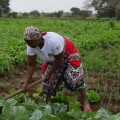 Africa must unlock the power of its women to save climate change
Africa must unlock the power of its women to save climate change
 PFZW scraps funding from Total and others for failure to transition into a cleaner energy mix.
PFZW scraps funding from Total and others for failure to transition into a cleaner energy mix.
MEDIA FOR CHANGE NETWORK
United States withdraws from core United Nations climate institutions
Published
1 week agoon
January 10, 2026
- United States withdraws from the UN Framework Convention on Climate Change, Green Climate Fund and Intergovernmental Panel on Climate Change.
- Global leaders warn decision will weaken climate cooperation, economic resilience and clean energy investment.
- The move raises concerns for climate finance flows and international scientific collaboration.
The United States has formally withdrawn from the United Nations Framework Convention on Climate Change, the treaty that underpins global action on climate change, marking one of the most far reaching reversals of international climate engagement by the country to date.
On 7 January the country’s president Donald Trump cut ties with 66 international bodies as he continued a push to dismantle US involvement in global efforts to fight climate change and safeguard biodiversity.
The decision, announced by the White House and confirmed by senior United States officials, includes immediate withdrawal from the Green Climate Fund and the Intergovernmental Panel on Climate Change, the world’s leading scientific body assessing climate risks and mitigation pathways. United States scientists have historically played a central role in the IPCC’s assessment reports.
United Nations climate chief Simon Stiell described the move as a serious strategic error, warning it would undermine the United States economy, employment and long term prosperity. He said that as climate related disasters intensify globally, disengaging from cooperation and science would leave the country less secure and less competitive.
The UN Framework Convention on Climate Change requires industrialised nations to reduce emissions, report transparently on climate performance and support developing countries through finance and capacity building. Its mechanisms are central to climate finance flows into emerging markets, including across Africa, where adaptation and clean energy investment needs remain substantial.
United States Treasury Secretary Scott Bessent confirmed the country would also exit the governing board of the Green Climate Fund, a key channel for funding renewable energy, resilience and low carbon development projects in developing economies. For African governments and project developers, the withdrawal raises uncertainty over future funding commitments and partnership continuity.
The move has drawn strong criticism from European leaders and environmental groups. European Union climate commissioner Wopke Hoekstra said the UN climate convention underpins global climate action and called the United States retreat regrettable and unfortunate. European Commission Vice President Teresa Ribera said the decision signalled a lack of concern for environmental protection, public health and human suffering.
Former United States Vice President Al Gore warned that withdrawing from the UNFCCC and IPCC risks dismantling decades of diplomatic progress and weakening trust in climate science at a critical moment.
The climate withdrawals form part of a broader policy shift under President Donald Trump, whose administration has exited dozens of international organisations. Nearly half of the affected bodies are linked to the United Nations, including agencies working on climate change, development, gender equality and conflict prevention. The White House said the organisations no longer serve American interests and promote agendas that conflict with national sovereignty and economic priorities.
Although the formal withdrawal from the UNFCCC will take up to a year to complete, the United States has already ceased active participation in many climate forums and declined to attend recent global summits. The administration has also blocked United States scientists from attending international meetings, raising concerns that future IPCC reports could face delays.
For African energy markets, the decision underscores the growing importance of diversified climate finance sources and regional leadership in clean energy deployment. While the United States steps back, other governments like South Africa, Kenya and Egypt plus private sector players are expected to continue advancing renewable energy and climate resilient infrastructure across the continent.
Author: Bryan Groenendaal
Source: greenbuildingafrica.co.za
Related posts:
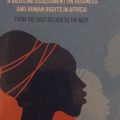
 Financial Institutions from Africa have made a monumental commitment of $100 billion to Africa’s green industrialization, a decision of immense significance that has the potential to shape Africa’s future.
Financial Institutions from Africa have made a monumental commitment of $100 billion to Africa’s green industrialization, a decision of immense significance that has the potential to shape Africa’s future.
 Africa adopts the Africa Climate Innovation Compact (ACIC) Declaration to drive the continent towards innovative climate solutions.
Africa adopts the Africa Climate Innovation Compact (ACIC) Declaration to drive the continent towards innovative climate solutions.
 Africa must unlock the power of its women to save climate change
Africa must unlock the power of its women to save climate change
 The Black Sea Grain Initiative: When the United Nations Brokers Profits for Corporations, Bankers, and Oligarchs
The Black Sea Grain Initiative: When the United Nations Brokers Profits for Corporations, Bankers, and Oligarchs

Will Uganda’s next government break the land-grabbing cycle?

Violations against Kenya’s indigenous Ogiek condemned yet again by African Court

COP30 : a further step towards a Just Transition in Africa

United States withdraws from core United Nations climate institutions

‘Food and fossil fuel production causing $5bn of environmental damage an hour’

Land tenure security as an electoral issue: Museveni warns Kayunga land grabbers, reaffirms protection of sitting tenants.

Will Uganda’s next government break the land-grabbing cycle?

Swedish pension fund drops TotalEnergies amid rising EACOP risks

Innovative Finance from Canada projects positive impact on local communities.
Over 5000 Indigenous Communities evicted in Kiryandongo District
Petition To Land Inquiry Commission Over Human Rights In Kiryandongo District
Invisible victims of Uganda Land Grabs
Resource Center
- REPARATORY AND CLIMATE JUSTICE MUST BE AT THE CORE OF COP30, SAY GLOBAL LEADERS AND MOVEMENTS
- LAND GRABS AT GUNPOINT REPORT IN KIRYANDONGO DISTRICT
- THOSE OIL LIARS! THEY DESTROYED MY BUSINESS!
- RESEARCH BRIEF -TOURISM POTENTIAL OF GREATER MASAKA -MARCH 2025
- The Mouila Declaration of the Informal Alliance against the Expansion of Industrial Monocultures
- FORCED LAND EVICTIONS IN UGANDA TRENDS RIGHTS OF DEFENDERS IMPACT AND CALL FOR ACTION
- 12 KEY DEMANDS FROM CSOS TO WORLD LEADERS AT THE OPENING OF COP16 IN SAUDI ARABIA
- PRESENDIANTIAL DIRECTIVE BANNING ALL LAND EVICTIONS IN UGANDA
Legal Framework
READ BY CATEGORY
Newsletter
Trending
-

 MEDIA FOR CHANGE NETWORK2 weeks ago
MEDIA FOR CHANGE NETWORK2 weeks agoLand tenure security as an electoral issue: Museveni warns Kayunga land grabbers, reaffirms protection of sitting tenants.
-

 MEDIA FOR CHANGE NETWORK5 days ago
MEDIA FOR CHANGE NETWORK5 days agoWill Uganda’s next government break the land-grabbing cycle?
-

 MEDIA FOR CHANGE NETWORK1 week ago
MEDIA FOR CHANGE NETWORK1 week agoSwedish pension fund drops TotalEnergies amid rising EACOP risks
-

 MEDIA FOR CHANGE NETWORK6 days ago
MEDIA FOR CHANGE NETWORK6 days agoCOP30 : a further step towards a Just Transition in Africa
-

 MEDIA FOR CHANGE NETWORK1 week ago
MEDIA FOR CHANGE NETWORK1 week agoUnited States withdraws from core United Nations climate institutions
-

 NGO WORK5 days ago
NGO WORK5 days agoViolations against Kenya’s indigenous Ogiek condemned yet again by African Court
